Free at Last: A Story of the Underground Railroad, Part 1
World history resources written from a godless perspective tell a story that begins with “primitive” people and continues to the “advanced” way that people live today. I don’t believe this tells an accurate story of history.
I sometimes wonder what archaeologists might surmise if they dug up evidence from the present time. I suspect it would depend on where they were digging.
Several years ago I was part of a group of Sunday School teachers who demonstrated various teaching ideas at a Bible teachers workshop in Texas. One of our ideas involved making a puppet stage out of a refrigerator box.
An attendee told us that the idea wouldn’t work at her congregation near the Texas-Mexico border because poor people there used refrigerator boxes for housing. A few days later on a mission trip in Mexico, I was with a group who visited a lady in her cardboard house.
At that very same time the President of the United States was living in the beautiful White House. If all the books of the world were burned up and electronic data were lost and an archaeologist dug on the site of that cardboard house in the year 3014, he might think 2014 was a primitive time in world history. He would get a different picture if he dug on the grounds of the White House.
The play that homeschoolers in our area performed last weekend was a snapshot of life in 1851. Among its themes was the contrast of the lives of a plantation owner’s family and friends as compared to the lives of the plantation’s slaves.
Because many of the children who played the roles of slaves were white, several of the slave scenes were performed in backlit shadow, which was a striking way to portray the darkness of their situation.
When the curtains opened for the first scene, a mass of slaves stood in the shadows singing a traditional African-American spiritual:
Chorus:
Nobody knows de trouble I’ve seen,
Nobody knows but Jesus.
Nobody knows de trouble I’ve seen.
Glory, hallelujah!
Sometimes I’m up; sometimes I’m down,
Oh, yes, Lord.
Sometimes I’m almost down to de ground.
Oh, yes, Lord.
Chorus
If you get there before I do,
Oh, yes, Lord.
Tell all-a my friends I’m a-comin’ too!
Oh yes, Lord.
Chorus
When they finished, overseer Matthew Harris stormed on stage and confronted Willie, accusing him of breaking a hoe.
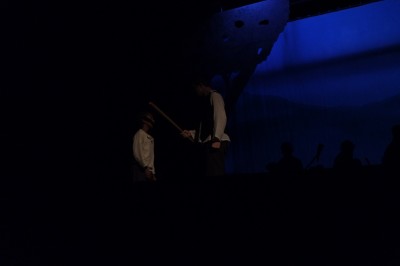
When Willie’s mother, who was also a field slave, came to his rescue, the overseer whipped them both. The scene was a powerful opening to the play, though the “whip” was a stick with soft yarn attached to it and the sound of the whip was percussion blocks banged together offstage.
When the overseer left, a fellow field slave helped Willie and his mother to their feet and they walked slowly back to their jobs in the field. The scene ended with one more chorus:
Nobody knows de trouble I’ve seen,
Nobody knows but Jesus.
Nobody knows de trouble I’ve seen,
Glory, hallelujah!
The dim lights went out, the slaves exited, and a violin filled the darkness with a haunting reprise of “Nobody Knows.”
Then, for the first time, the bright stage lights came on revealing the interior of the “big house.” Willie’s grandmother, house slave Granny Ann, stood at the window crying.
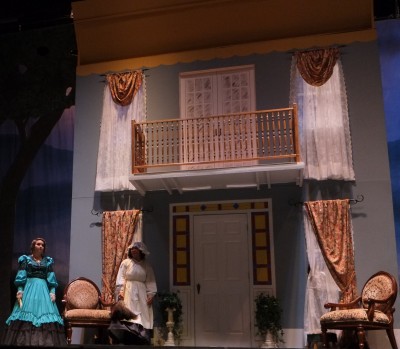
When her mistress Mrs. Collins asked her why, she told her it was because her grandson and daughter were beaten for no good reason. Mrs. Collins scolded her, ending with: “Not all slaves have it half as good as you do here.”
In skipped young Mary Collins, excited about her birthday party.
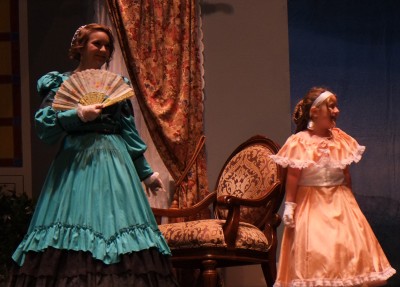
Soon many happy boys and girls arrived in beautiful party clothes.
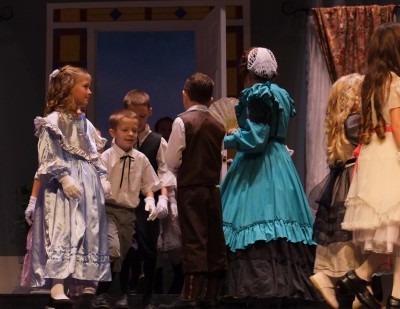
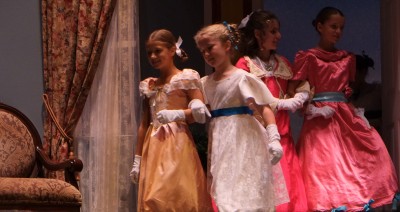
The party began with the traditional singing game, “Old Bald Eagle.”
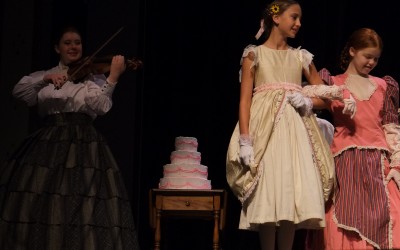
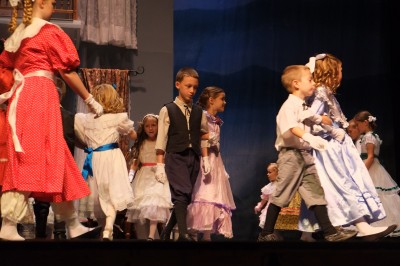
Then they sang the traditional repeating children’s song, “The Barnyard”:
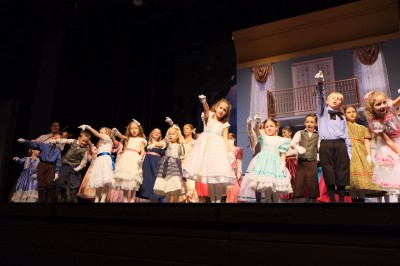
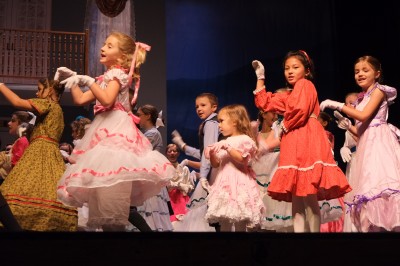
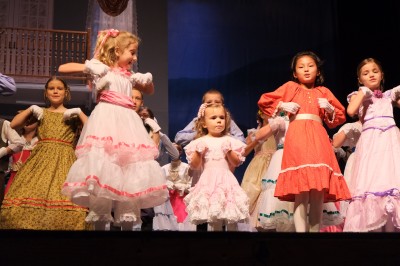
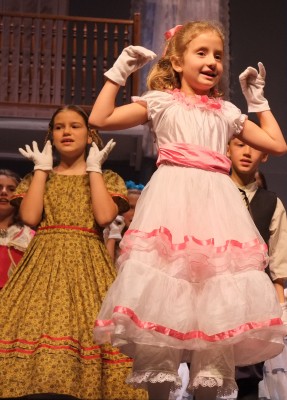
Some children were experiencing a joyous childhood in 1851, while others were literally slaving in fields of cotton.
In 1851 and in every year before and since, each human being has been a child of God, created in His image. Not one of those creations has been primitive. Not one has been inferior.
I want to encourage you to give your children a joyous childhood, one that is free from slavery–slavery to an education system that doesn’t fit, slavery to a homeschool program that works for your friend’s child but doesn’t work for yours, slavery to expectations that come from other people and not from the God Who made your child.
My prayer is that every homeschooled child can learn the way he learns best and can become who God created him to be. I pray that every homeschooled child and every homeschooling parent can truly be — Free At Last!
And I will walk at liberty,
For I seek Your precepts.
Psalm 119:45

